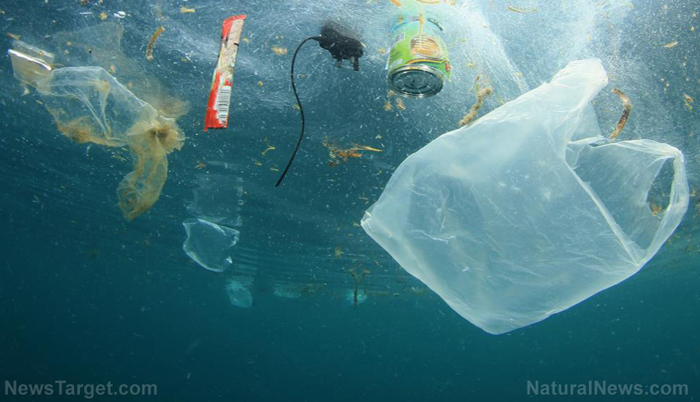![]() Home > Lifestyle
Home > Lifestyle
Researchers Find Plastic-Eating Microbe That Can Solve Our Ocean’s Plastic Problem

![]() April 12th, 2019 | 07:51 AM |
April 12th, 2019 | 07:51 AM | ![]() 1611 views
1611 views
NaturalNews.Com
Even as humans keep on filling the planet with plastic pollutants, the bountiful oceans reveal a means by which the problem can be resolved. An Israeli research team announced that they successfully created a biodegradable plastic from a common seaweed. Their new bioplastic could be broken down by bacteria that feed on the seaweed in the wild.
Switching from conventional plastics to this biodegradable equivalent could help reduce the amount of trash that ends up in the sea in the long run. And in addition to already having a naturally occurring microorganism that could break it down, the new biopolymer was not made from land-based plants.
“Plastic from fossil sources is one of the most polluting factors in the oceans,” explained Dr. Alexander Goldberg of the Tel Aviv University (TAU) in a press release. “We have proved it is possible to produce bioplastic completely based on marine resources in a process that is friendly both to the environment and to its residents.”
A professor at the university’s school of environmental and earth sciences, Goldberg and fellow TAU researcher Michael Gozin pooled their efforts to create the seaweed-based bioplastic. They published the details of their experiment in the scientific journal Bioresource Technology.
Bioplastic production requires fresh water
Conventional plastics are a serious threat to the ecosystems of the oceans. Experts warned that if humans continued to manufacture these petroleum-based products at the expected rates, there will be more plastics in the oceans in 2050 than there are living fish.
Many biodegradable plastics have already been created to act as substitutes for plastics made from fossil fuels. However, the plants used to provide the raw carbon material for manufacturing these earlier bioplastics were all grown on land. They also needed lots of fresh water.
There are countries in the world that lack large swathes of fertile land for growing large crops. Others do not have much in the way of fresh water. And then there are countries like Israel, which has limited amounts of both arable soil and irrigation water.
“There are already factories that produce this type of bioplastic in commercial quantities, but they use plants that require agricultural land and fresh water,” said Golberg, who served as one of the authors of the study. “The process we propose will enable countries with a shortage of fresh water, such as Israel, China and India, to switch from petroleum-derived plastics to biodegradable plastics.”
New bioplastic is made from seaweed instead of land plants
Goldberg drew inspiration from his earlier efforts at developing sustainable uses for seaweed. His laboratory has previously come up with ethanol biofuels, proteins, and sugars that could be extracted from seaweed grown in farms.
He and Gozin chose to use Ulva, a genus of seaweed that is also known as “sea lettuces.” These large algae grow in saltwater, so they could be cultivated on a large scale without the need for land or irrigation water.
Ulva is nutritious and consumed by numerous organisms. Humans, for instance, use sea lettuce as an ingredient in salads and soups. But for the purpose of the study, the most important consumer of Ulva is the microorganism Haloferax mediterranei. Testing showed that the bacteria could break down biopolymers made from Ulva.
The TAU researchers are currently looking for the optimal combinations of algae and bacteria for making new bioplastics with different properties. Single-use plastic, for instance, would have different chemical requirements from reusable plastic. In turn, the plastic would need a different species of seaweed and the appropriate bacteria that can break down its associated bioplastic.
Source:
courtesy of NATURALNEWS
by Edsel Cook
If you have any stories or news that you would like to share with the global online community, please feel free to share it with us by contacting us directly at [email protected]